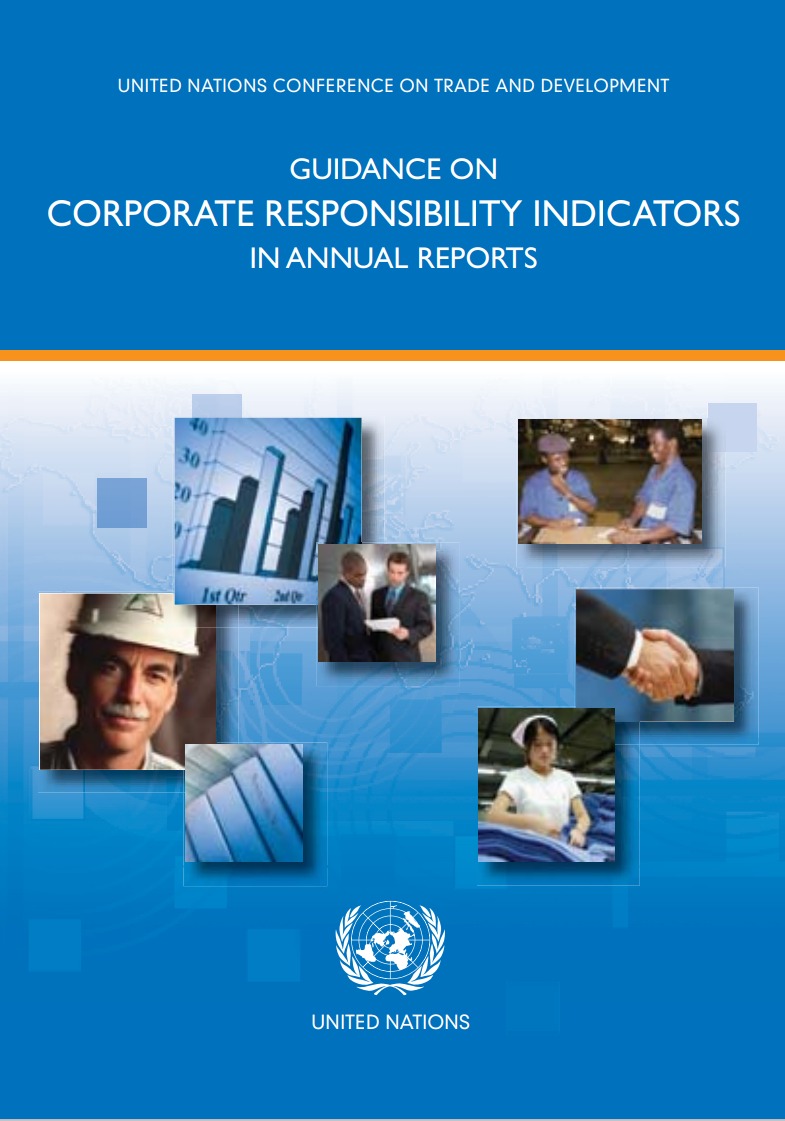
In a rapidly globalizing world, interest in corporate responsibility continues to grow among a broad range of enterprises, investors, civil society actors and other stakeholders. The United Nations has undertaken various actions to respond to this interest and to promote positive corporate contributions to sustainable development. The United Nations Global Compact has become the largest corporate citizenship initiative in the world and continues to attract more signatories from all corners of the globe. The United Nations Principles for Responsible Investment is attracting large numbers of institutional investors who see corporate responsibility factors as affecting their investments. With trillions of dollars around the world invested in funds that explicitly consider corporate responsibility issues, and with stakeholders demanding more non-financial information from enterprises, the call for clear, concise and concrete guidance on corporate responsibility reporting has never been louder.
This form of reporting provides shareholders and other stakeholders with a more holistic view of an enterprise's activities and performance. This serves the goal of all corporate reporting, which is to increase our understanding of a company's performance, and the quality of its management. Such corporate transparency facilitates investment decisions, and more broadly, allows governments and other stakeholders to assess an enterprise's contribution to social and economic development. The demand for more information on corporate responsibility issues is becoming increasingly sophisticated, with greater calls for concise and comparable reports. This is an area where UNCTAD’s Intergovernmental Working Group of Experts on International Standards of Accounting and Reporting (ISAR) plays a valuable role.
Guidance on Corporate Responsibility Indicators in Annual Reports viii Since its eighteenth session in 2001, ISAR has viewed reporting on corporate responsibility as a significant emerging issue in the area of corporate transparency. ISAR recognized at its twentieth session in 2003 that enterprises continued to produce more information on corporate responsibility, and that the pressure for improving reporting on social issues was increasing. Between its twenty-first session in 2004 and its twenty-fourth session in 2007, ISAR examined existing indicators, identified a core set of indicators, and developed a consistent reporting methodology. This work was undertaken within the framework of ISAR’s mandate to promote the harmonization of best practices in corporate reporting, and in recognition of the call in the São Paulo Consensus for UNCTAD to carry out analytical work with a view to facilitating and enhancing positive corporate contributions to the economic and social development of host developing countries. This guidance is expected to serve as a practical voluntary tool that will assist enterprises in their efforts to communicate with investors and other stakeholders.
